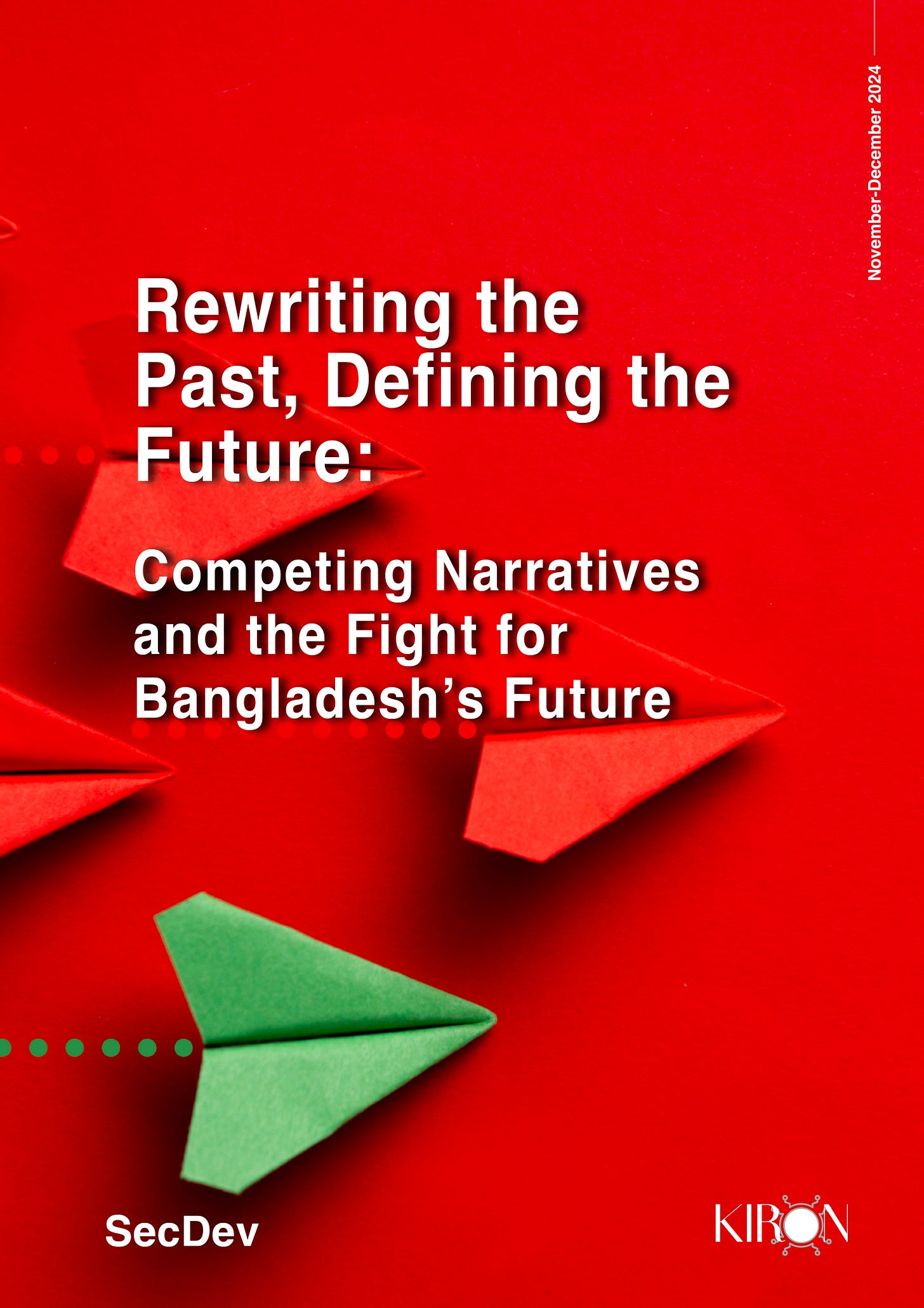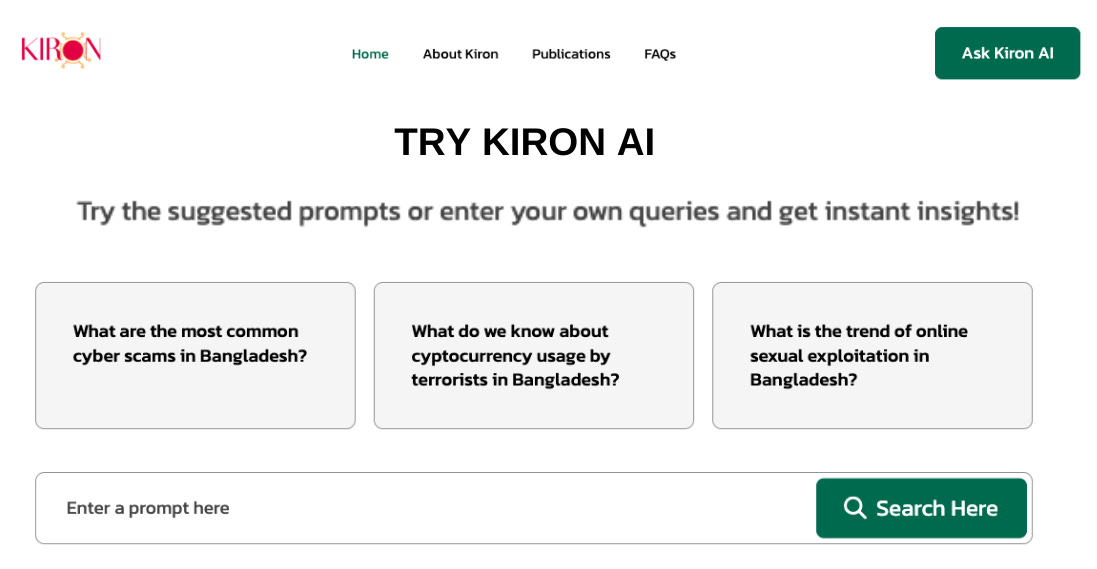Rewriting the Past, Defining the Future: Competing Narratives and the Fight for Bangladesh’s Future
November-December 2024
Bangladesh’s national identity is increasingly contested, as competing narratives of its liberation war fracture the political and social landscape. The battle for control over history is not a benign academic exercise; it is a potent weapon wielded by political actors and extremist factions alike to reshape the country’s future. Al Qaeda sympathizers and Islamist groups have reframed historical accounts of the 1971 liberation struggle, recasting Pakistan’s role and positioning their narratives to align with ideological goals. In doing so, they are undermining the Awami League’s long-held version of history, which has been a cornerstone of its political legitimacy since independence. This reimagining of the past is not merely revisionist but revolutionary, seeking to mobilize support for an alternative vision of Bangladesh’s identity—one steeped in Islamist ideology and sharply at odds with its secular founding principles.
For the ruling Awami League, these challenges could not come at a worse time. Already weakened by accusations of corruption and authoritarian tendencies, the party finds itself in a defensive crouch, battling not only its Islamist opponents but also the disillusionment of a generation of young Bangladeshis. This generation, having grown up under Awami League dominance, appears increasingly alienated from the party’s liberation war narrative. The Jamaat-e-Islami and its student wing, Bangladesh Islami Chhatra Shibir, have astutely exploited this generational divide. Publicly celebrating the liberation war while privately fostering pro-Pakistan sentiment, they offer an alternative narrative that resonates with disaffected youth. In doing so, they provide fertile ground for radicalization, as disillusionment morphs into anger and, for some, a turn toward extremist ideologies.
Extremist groups, including Islamic State affiliates, Al Qaeda-linked networks, and Hizb-ut-Tahrir, have seized upon the narrative vacuum to expand their influence. They operate with alarming impunity, aided by the government’s fragmented oversight of digital platforms. Online radicalization campaigns now run parallel to offline recruitment, with calls for violence against perceived enemies—both within and outside the Muslim community—growing increasingly brazen. The threat is no longer confined to ideological indoctrination; it extends to real-world mobilization that could destabilize the fragile political order.
Adding to the turbulence, Bangladesh’s media landscape has become a theatre for ideological warfare. Major outlets like Prothom Alo and The Daily Star are accused of aligning with secular and foreign agendas, drawing ire from Islamist factions and nationalist elements alike. Disinformation campaigns fuel these accusations, polarizing public opinion and stoking unrest. Journalists and media houses face threats of violence, transforming editorial decisions into acts of courage and further eroding the space for open discourse.
Against this backdrop, the interim government finds itself overwhelmed. Economic pressures, including inflation and unemployment, amplify public grievances, while a faltering law enforcement system struggles to address escalating violence. Accusations of targeted political assassinations and high-profile killings can further deteriorate the situation. The government’s capacity to address these intertwined crises appears limited, raising questions about its ability to maintain even a tenuous stability in the months ahead.
The fight for Bangladesh’s future is unfolding not just on the streets but also in classrooms, living rooms, and virtual spaces. It is a struggle to define what the country stands for—secular democracy or Islamist nationalism—and who gets to claim ownership of its past. For policymakers and analysts, the lesson is clear: narratives are not just reflections of history but instruments of power. In Bangladesh, as elsewhere, controlling the past remains key to shaping the future.
We are excited to announce Kiron AI, our innovative AI tool designed to assist you in research, particularly in the areas of digital harms and extremism in Bangladesh.
Kiron AI allows you exclusive access to draw insights from a decade's worth of SecDev reports. This tool is particularly valuable for those focused on understanding the nuances and developments in digital harms and extremism within the Bangladeshi context.
We are offering early access to interested subscribers of our monthly reports. This is a unique opportunity to be among the first to test Kiron AI and provide feedback that will shape its future development. Please click the link below to express your interest. Your insights will be crucial in refining Kiron AI to better meet your research needs.
As we move forward, we plan to extend access to Kiron AI to all subscribers of the SecDev reports, making this powerful tool widely available.



